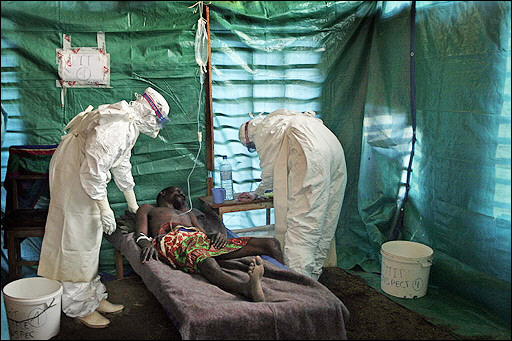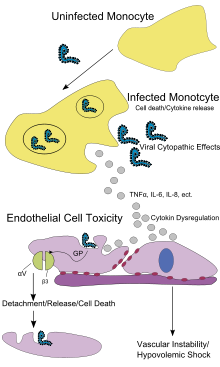
Ebola doesn’t have vaccinations, and there is no standard treatment, besides hospitalization, isolation, administration of fluids, and anti-viral medications.
Teams in Uganda are trying to track down anyone who came into contact with patients infected with the Ebola virus, which has killed at least 14 people in the last three weeks. Ebola, one of the most virulent diseases in the world, is spread by close personal contact and can kill up to 90% of those who become infected.
This month’s outbreak in western Uganda, about 200km outside of Kampala, initially went undetected because patients did not show typical symptoms, Health Minister Dr. Christine Ondoa told CNN on Sunday. Patients had fevers and were vomiting, but did not show other typical symptoms, such as hemorrhaging.
“One can recover, but there’s no medicine that can help one recover, so you just have to pray that your own body is strong enough,” World Health Organization spokesman Gregory Hartl said.
Uganda has seen three major Ebola outbreaks over the past 12 years. The deadliest was in 2000 when 425 people were infected. More than half of them died.
An emergency team of 100 volunteers was undergoing training Monday to help spread the word in vulnerable communities about the disease and its transmission, the Uganda Red Cross Society said in a statement.

Think people should hear about this?